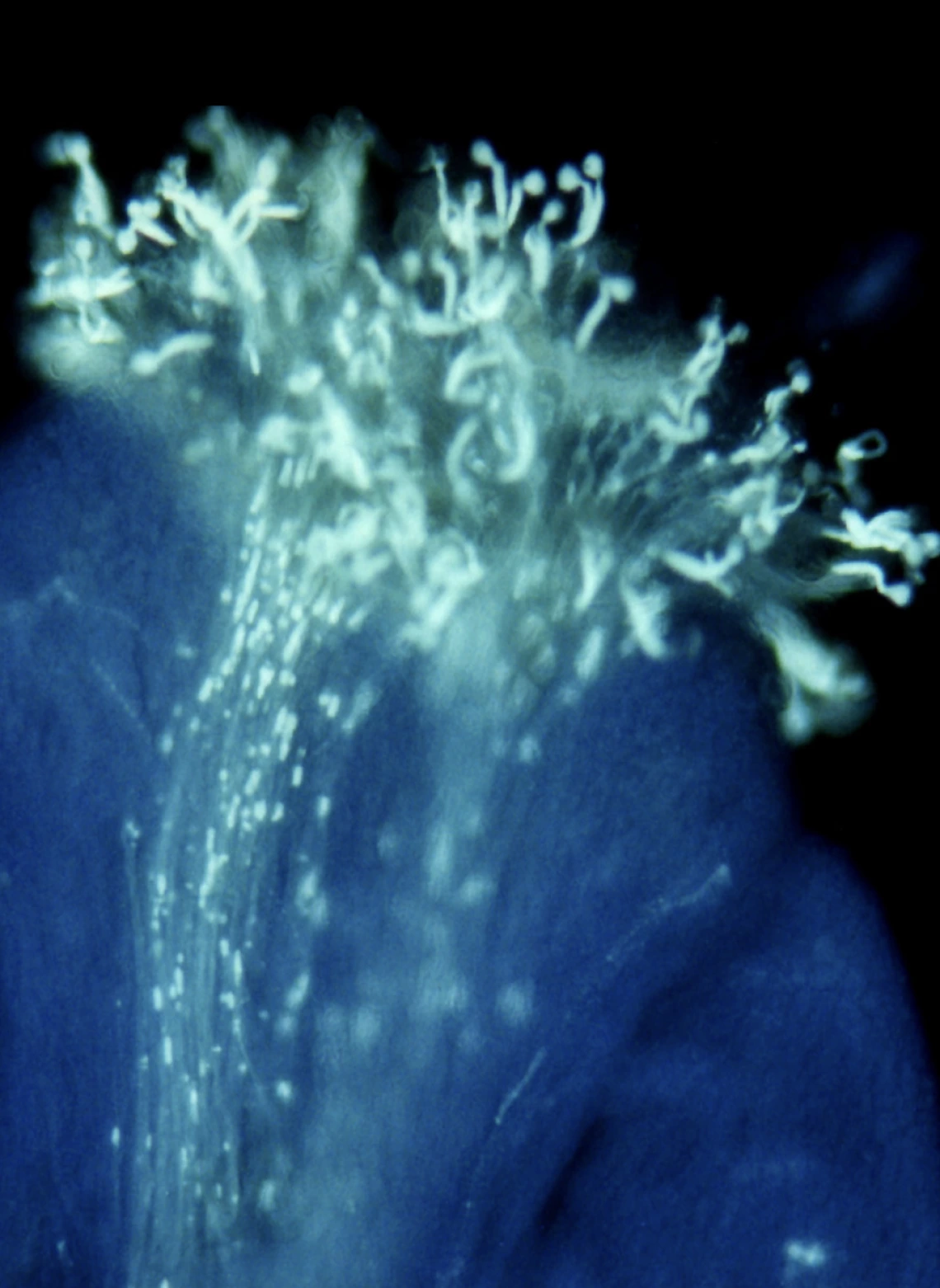School of Plant Sciences Seminar Series

Pollen tube growth in vivo in pistil
Speaker
When
Where
Abstract: Cultivated tomatoes experience significant decreases in fruit and seed yields when exposed to heat stress, a critical issue as global temperatures rise. Our studies have revealed that this susceptibility arises when the pollen tube growth stage is subjected to heat stress, reaching 37°C for 8-12 hours, even when all other phases of reproductive development occur under controlled conditions. Within the Solanum lycopersicum species (tomato), considerable variation exists, resulting in thermotolerance in specific naturally occurring cultivars. To investigate this further, we conducted studies using the economically important yet thermosensitive cultivar Heinz alongside three thermotolerant cultivars: Malintka, Nagcarlang, and Tamaulipas. We aimed to analyze their transcriptional responses to heat stress and identify genes that may confer resilience to heat stress in the pistil, which is essential for facilitating pollen tube growth. Transcriptomic analyses revealed genes differentially expressed in the three thermotolerant cultivars under heat stress but remained unresponsive to heat stress in Heinz. These genes include cell wall-modifying enzyme genes and those involved in reducing reactive oxygen species, which could aid thermotolerant pistils in creating a more conducive environment for pollen tube growth under heat stress and enhance seed and fruit yields. We propose that cell wall modifiers and regulators of ROS levels in pistils are potential targets for improving reproductive thermotolerance in tomatoes.

